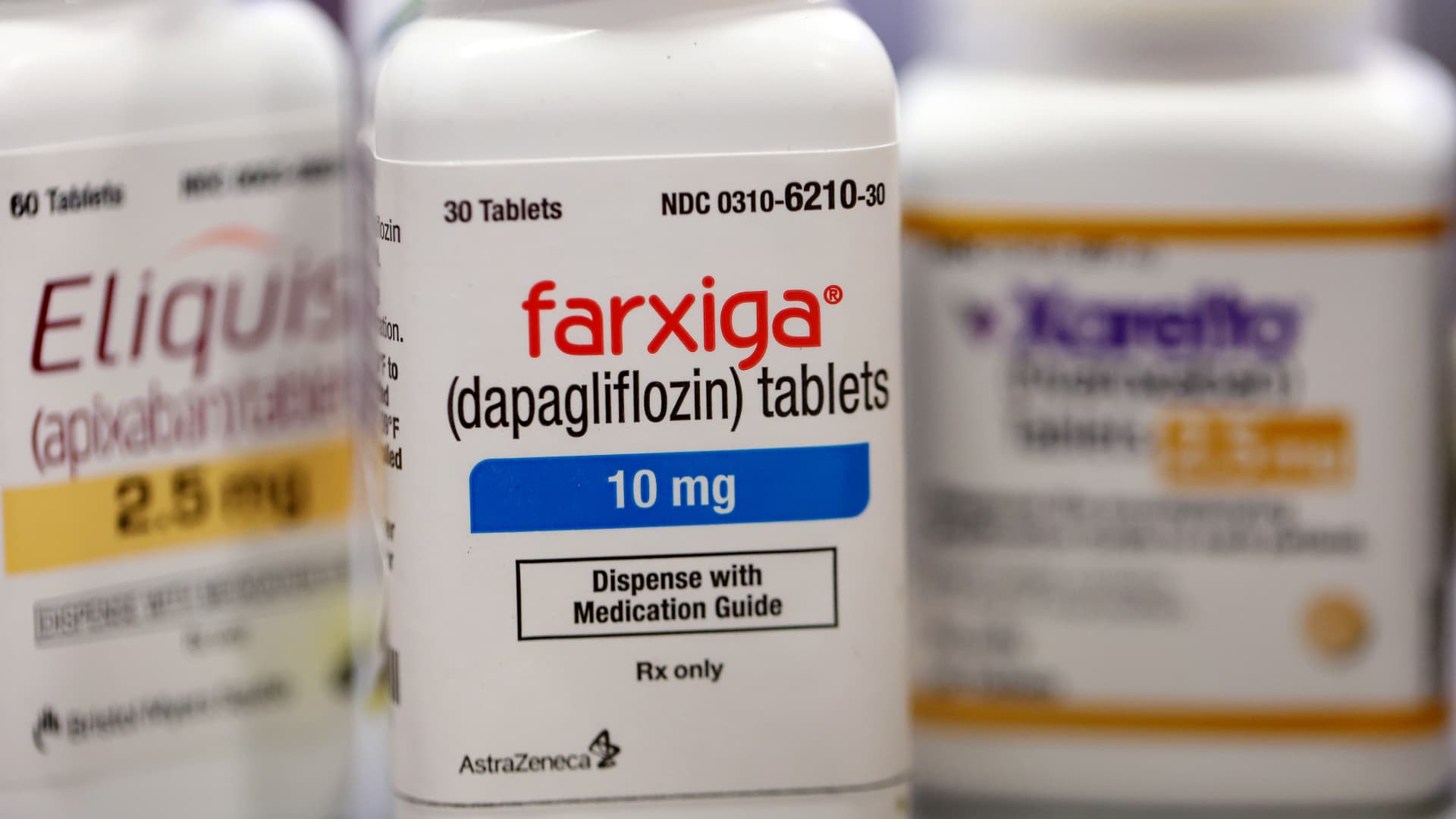In this photo illustration, Farxiga is made available to customers at the New City Halsted Pharmacy on August 29, 2023 in Chicago, Illinois.
Scott Olson | Getty Images
AstraZeneca and Boehringer Ingelheim on Wednesday told CNBC they will agree to participate in the first round of Medicare drug price negotiations, even after both pharmaceutical companies sued to halt the process last month.
AstraZeneca’s Type 2 diabetes drug Farxiga and Boehringer Ingelheim’s own diabetes drug Jardiance are among the first 10 drugs selected for price talks with Medicare. The two companies appear to be the first manufacturers to indicate that they will comply with the negotiations, which seeks to rein in the rising costs of prescription drugs for older Americans.
Manufacturers of the other eight drugs selected have until Oct. 1 to sign an agreement to participate in the process. Those companies did not immediately respond to CNBC’s request for comment about their intentions to participate.
“We remain committed to ensuring patients have access to FARXIGA and plan to participate in the process outlined by CMS to communicate the value of FARXIGA to people covered by Medicare,” AstraZeneca said in a statement to CNBC.
Boehringer Ingelheim said in a statement it is “committed to engaging in open and transparent conversations” with the Centers for Medicare and Medicaid Services, or CMS.
“We look forward to sharing detailed information with CMS on the value of Jardiance and to reinforce the need to invest in scientific medical innovation for the patients we serve,” the company said.
AstraZeneca, Boehringer Ingelheim and other drugmakers like Bristol Myers Squibb, Johnson & Johnson and Merck have filed at least eight separate lawsuits in recent months seeking to declare the negotiations unconstitutional. Another lawsuit from the Chamber of Commerce, one of the biggest lobbying groups nationwide, is seeking a preliminary injunction, which aims to block the negotiations before Oct. 1.
The pharmaceutical industry fiercely opposes the process because it believes it will threaten its revenue growth, profits and drug innovation. However, analysts expect minimal financial losses for companies, at least initially, since most of the drugs selected already face upcoming patent expirations that will likely weigh on revenue.
For example, Farxiga will lose its market exclusivity in 2026, which will open up the market to generic alternatives. That’s the same year renegotiated prices are set to take effect.
The Inflation Reduction Act, which passed Congress last year in narrow party-line votes, empowered Medicare to negotiate drug prices for the first time in the program’s six-decade history. The law is the central pillar in the Biden administration’s efforts to control rising drug prices and was a major victory for the Democratic Party.
The administration named the first round of drugs set to face price talks last month, kicking off a lengthy negotiation process that will end in August 2024.

